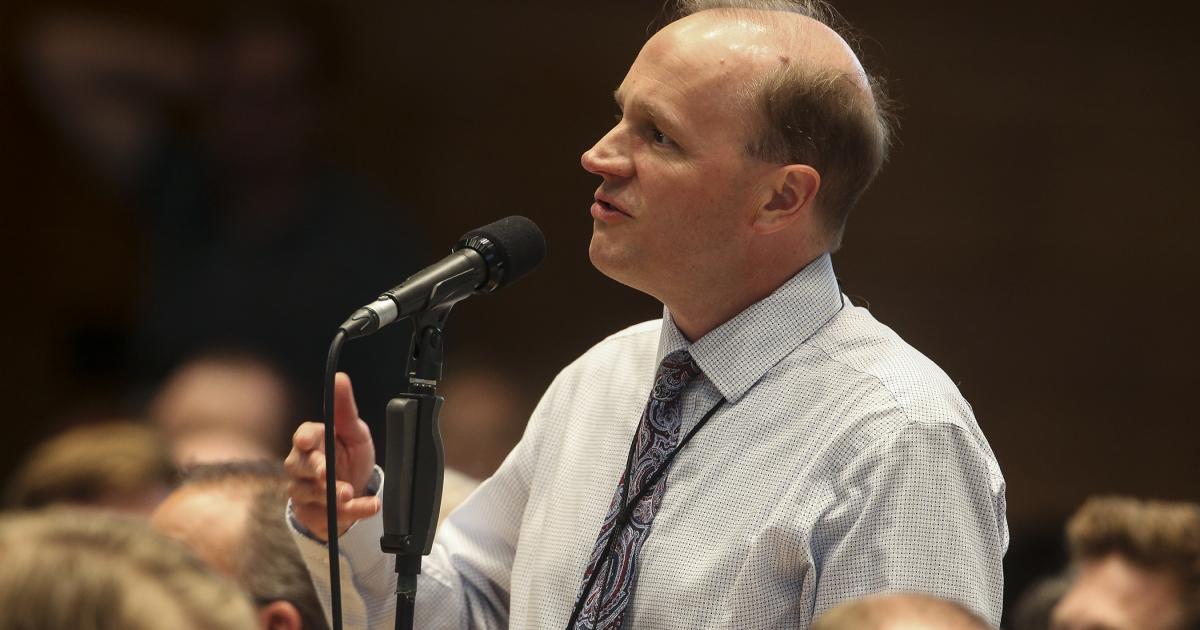
Synod 2024 believes the church needs guidance “on the historical, biblical, and theological aspects of (church) membership” and it has tasked the Office of General Secretary with providing that theological reflection and advice, reporting back to Synod 2026.
In addition to asking for that report, synod encouraged councils to work out particular situations of church membership “under the principle of original authority—Church Order Article 27—within their context and in submission to our creeds and confessions.”
These decisions, an approval of the recommendations of Advisory Committee 5, are aimed at clarifying “the difference in the relative commitment to the confessions between a member and an officebearer.”
Synod is the annual general assembly of the Christian Reformed Church in North America. It is meeting June 14-20 in Grand Rapids, Mich.
The committee report acknowledged that a person making a profession of faith might “have not fully comprehended all the nuances of the creeds and confessions.” According to committee member Ken Douma, Classis Alberta North, the recommendation to encourage councils to work out their local situations “is giving local councils the authority to figure out what this looks like in their churches.”
Anthony DeKorte, reporting for the committee, concurred. “There needs to be some room for them to get on board with being a Christian before committing to every part of every confession,” said DeKorte, Classis Arizona.
The recommendation drew support, disapproval, and questions from delegates. Patrick Anthony, Classis Central California, suggested that a decision made at Synod 1964 regarding the membership of a couple who did not support infant baptism indicated a “precedent” for the recommendation. In that case, synod recommended not to sustain a protest of the admission of the couple, on the grounds that the couple was otherwise in line with CRCNA doctrine and agreed not to “propagate any views conflicting with the doctrinal position of the church.”
Joseph Vanden Akker, Classis Grandville, spoke against the recommendation. “I just heard the statement that the local church has the authority to receive members who totally do not agree with our creeds and confessions,” he said incredulously. “How in the world can that be consistent with the church order?”
Paul Verhoef, Classis Alberta South/Saskatchewan, speaking in favor, mentioned the example of a church in his classis has many people from Catholic or Baptist backgrounds interested in joining because there are no other churches in the area: “What does a church like Iron Springs do when they get members wanting to join who aren’t really Reformed?”
DeKorte said the recommendation affirmed local church councils’ ability to make decisions in such situations.
Ryan Schreiber, Classis Grand Rapids East, asked how this advice would apply in the case of a same-sex couple seeking membership. DeKorte re-read the recommendation, which states that church councils must work out situations “in submission to our creeds and confessions.”
Synod 2024 is meeting June 14-20 at Calvin University in Grand Rapids, Mich. Find daily coverage from The Banner news team at thebanner.org/synod. Visit crcna.org/synod for the synod schedule, webcast, recordings, photos, committee reports, and liveblog. Synod is the annual general assembly of the Christian Reformed Church.
